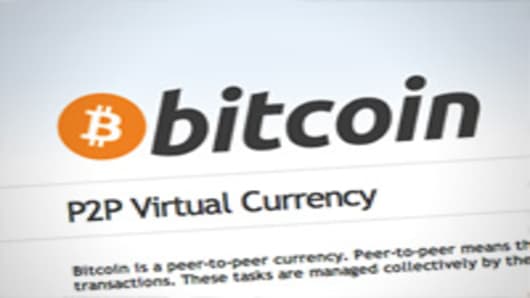Bitcoin, the peer-to-peer digital currency is under fire.
It's struggling with hack attacks that sent the value of the virtual currency plummeting, major thefts of the currency from one users computer, plus Senators Chuck Schumer and Joe Manchin calling for a crackdown.
My colleague John Carney writes about how the Bitcoin "HackCrash" raises doubts about the viability of virtual currency. But the folks behind the currency are pushing very hard to make it legit.
Though Bitcoin isn't an organization or company with someone in charge, Gavin Andresen, Bitcoin's lead developer has emerged as the unofficial spokesperson for the currency. He was just down in Washington D.C. at the CIA presenting Bitcoin to a digital currency conference. He's also been meeting with his Congressmen to educate them on the system, and why the company should be seen as a positive to cut transaction costs, rather than an evil responsible for money laundering and drug deals.





